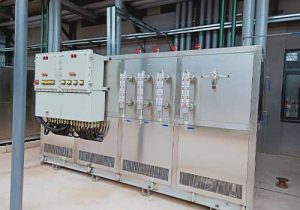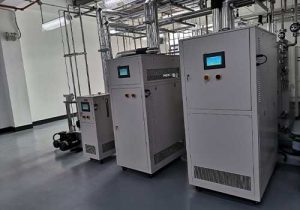chilled water cooling water
Chilled Water and Cooling Water Systems: A Comprehensive Overview
Chilled water and cooling water systems are integral parts of heating, ventilation, and air conditioning (HVAC) systems, as well as various industrial processes. These systems play a crucial role in maintaining optimal temperatures for comfort and process control. This article explores the principles of chilled and cooling water systems, their applications, and the factors that contribute to their effectiveness.

Understanding Chilled Water Systems
Chilled water systems are designed to cool and dehumidify indoor air by circulating chilled water through heat exchangers or cooling coils. The chilled water is produced by a chiller, which removes heat from the water using a refrigeration cycle. The cooled water is then pumped through a network of pipes to air handling units, where it absorbs heat from the air, thereby cooling the space.
Understanding Cooling Water Systems
Cooling water systems, on the other hand, are used to dissipate heat generated by processes or equipment. They work by circulating water through heat exchangers, where the heat is transferred to the water. This heated water is then discharged or cooled before being recirculated. Cooling water systems are commonly used in power plants, industrial processes, and data centers to prevent overheating of equipment.

Differences Between Chilled and Cooling Water Systems
While both systems involve the circulation of water, their purposes and applications differ. Chilled water systems are primarily used for comfort cooling in buildings, whereas cooling water systems are used for process cooling in industrial settings. Chilled water systems often require additional components, such as冷却塔 or cooling coils, to enhance heat rejection, whereas cooling water systems may rely on direct discharge or other heat dissipation methods.
Factors Influencing System Efficiency
Temperature Differential: The difference in temperature between the supply and return water affects the efficiency of both systems. A larger temperature differential can improve efficiency but may also increase the risk of freezing or scaling.
Flow Rate: The rate at which water is circulated through the system can impact its cooling capacity. Insufficient flow rates can lead to inadequate cooling, while excessive flow rates may result in energy wastage.
System Design: The design of the piping, heat exchangers, and other components can significantly influence the overall performance of the system. Proper design ensures optimal heat transfer and minimizes energy loss.

Benefits of Chilled Water Systems
Energy Efficiency: Chilled water systems can be more energy-efficient than traditional air conditioning systems, as they can leverage thermal storage and operate at lower temperatures.
Comfort and Control: They provide consistent and customizable cooling, enhancing occupant comfort and satisfaction.
Scalability: Chilled water systems can be easily scaled to accommodate changes in cooling demand, making them suitable for a wide range of applications.
Selection and Maintenance of Chilled Water Systems
When selecting a chilled water system, it is important to consider factors such as the cooling load, available space, and budget. Regular maintenance, including cleaning and inspecting heat exchangers and checking for leaks, is crucial for ensuring the system’s efficiency and longevity.
Conclusion
Chilled water and cooling water systems serve different yet vital roles in temperature control for both comfort and industrial processes. Understanding their principles, differences, and the factors that influence their performance is essential for selecting and maintaining the most appropriate system for a given application. By optimizing these systems, users can achieve energy efficiency, cost savings, and improved comfort or process control.
Related recommendations
What Factors Affect the Price of Water-cooled Screw Chillers?
1335What Factors Affect the Price of Water-cooled Screw Chillers? Water-cooled screw chillers are refrigeration equipment that must be used in the production process of many enterprises. However,...
View detailscooling system with water
521Cooling Systems with Water: A Comprehensive Guide IntroductionCooling systems that utilize water are essential for managing heat in various industrial, commercial, and residential applications....
View detailsSelection, Configuration and Application of Industrial Chillers
1629Selection, Configuration and Application of Industrial Chillers There are many processing plants that use industrial chillers, but many friends don’t know how to choose the unit when they buy...
View detailschillers canada
630Chillers in Canada: A Comprehensive GuideChillers are vital cooling systems used in a wide range of industries across Canada, from manufacturing and food processing to pharmaceuticals and commerci...
View details
 LNEYA Chiller
LNEYA Chiller







HelloPlease log in